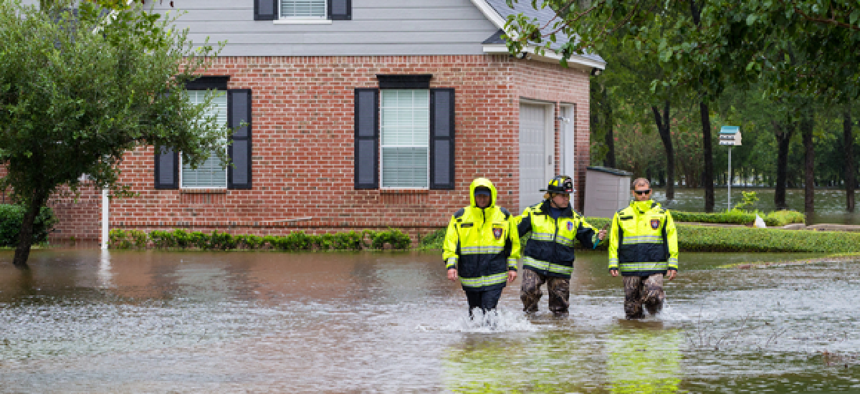Technology’s response to Irma, Harvey and Maria

Technology vastly improved how information was gathered and shared between federal and local leaders, emergency responders and residents.
If this year’s hurricane season has taught us anything, it’s that emergency response teams have one of the hardest jobs in the world. Hurricanes Harvey, Irma and Maria were three of the most devastating storms in decades. They displaced hundreds of thousands of people, brought down key public infrastructure and created resource shortages. The consequences of these storms made the job of keeping people safe during these major weather events very difficult.
There is one glaring difference between the emergency response conducted during these three hurricanes and the response witnessed with previous storms. Take Hurricane Katrina, which was not only the costliest natural disaster the United States has ever seen, but also the third deadliest hurricane in the country's history. While a lack of preparation and mismanagement played a huge role in delaying emergency response and providing aid, poor communication also crippled response.
While much of the discussion following hurricanes remains centered on the design, development, sprawl and planning issues that make cities more susceptible to these storms, the fact is there is a much more positive story to share around the improvements to the way that we manage, prepare and respond to crisis situations. Not surprisingly, the key to these improvements can be found in technological advances that make the lives of first responders and impacted residents just a little bit easier during these trying events.
Simply put, technology stepped up in a big way after Harvey, Irma and Maria -- vastly improving how information was gathered and shared between federal and local leaders, emergency responders and residents.
For example, in preparation for Hurricane Irma’s arrival, Google collaborated with Florida officials to update its Maps app with the latest road closure and shelter information, providing key information for people evacuating. This marked the first instance where a major technology company worked closely with government officials during a natural disaster to provide real-time infrastructure and safety information.
The use of the widely used Google Maps made disseminating key information was extremely effective. Whereas GPS apps or word-of-mouth information might have unintentionally led those seeking shelter to flooded areas or blocked roads, Florida’s collaboration with Google Maps ensured residents had an information source that was constantly updated.
Google Maps wasn’t the only app used heavily during the hurricanes. GasBuddy shared live updates on fuel availability and station outages to help people affected by Harvey and Irma find gasoline as they sought to evacuate or fuel generators, while Zello allowed those stranded to speak directly with volunteers to coordinate rescues. In the aftermath of Harvey, drones authorized by the Federal Aviation Administration were used in Houston to help assess damage and, with footage posted online, help workers document to their employers that they could not get to work.
Keeping a clear line of communication between local emergency response, law enforcement agencies and residents is just as important. While emergency alerts and notifications are by no means new forms of technology, Irma was the first large-scale disaster in which a single statewide emergency notification system, AlertFlorida, was employed by local government agencies across the majority of counties in a state. The use of this technology is an important milestone for emergency management, as disasters are inherently cross-boundary, cross-jurisdictional events that require coordination.
The AlertFlorida system, managed by the Florida Division of Emergency Management, was used in over 85 percent of counties affected by Irma. Through the shared system, the agency was able to consolidate messaging and training activity, leveraging one system to communicate hurricane-specific information to residents. In addition, the state of Florida promoted the keyword, FLPREPARES, to residents and visitors. By texting FLPREPARES to a preset number from their cell phones, people automatically received updates on storm surges, evacuation plans, shelter options and other critical information. Messages could be received by text, voice call, email, push notification or digital signage, so if one system was down, officials had other options for communication.
Unfortunately, natural disasters -- be they hurricanes in the Southeast or wildfires out West -- look increasingly likely for a large swath of the U.S. population. We have learned through these recent events how technology can be used to warn and help evacuate residents, connect people with rescuers, find temporary housing and help manage after-storm relief efforts – proving that technology's power to keep us informed and connected is critical when people face a crisis.
States, cities and their disaster readiness agencies must work with technology companies to ensure they are using every tool possible to mitigate the effect of these storms. The good news is that most people already are carrying a key part of the solution in their pockets.
NEXT STORY: U.S. Courts working to automate patching





